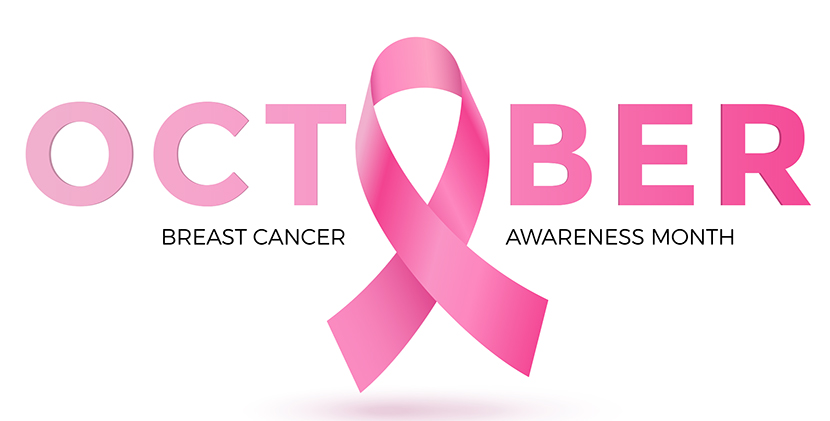Breast Cancer Awareness Month
Every year, the month of October is observed for National Breast Cancer Awareness in order to shine a light on the disease and encourage early detection.National Breast Cancer Awareness Month (NBCAM) was founded in October of 1985 and was aimed to promote mammography which is the most effective tool in the fight against breast cancer. This yearly international health campaign is organized by breast cancer charities every October to raise awareness of the disease and increase funds for research into its cause, prevention, diagnosis, treatment, and one day, a cure. NBCAM drives to educate the public about the importance of early screening, testing, and more.
In 1993, Evelyn Lauder, Vice President of the Estee Lauder Companies, founded The Breast Cancer Research Foundation. The foundation established the pink ribbon as its symbol. Many events are held around the world to honor Breast Cancer Awareness. These events include walks and runs as well as pink illumination of landmark buildings. The National Football League promotes breast cancer awareness by including the color pink on and off the field. The Komen Race for the Cure is now a year-round event to honor breast cancer awareness.
As this campaign works to increase attention for Breast Cancer Awareness, we also want to focus on how breast cancer can affect someone’s mental health. A cancer diagnosis can take a toll on one’s mental health. There are psychological effects that a breast cancer diagnosis can cause including depression, anxiety and self-blame.
The American Cancer Society says some things to look for include:
- Unable to eat or sleep
- Lacks interest in usual activities for several days
- Unable to find pleasure in things they have enjoyed in the past
- Emotions that interfere with daily activities and last more than a few days
- Acts more confused
- Trouble breathing
- New or unusual symptoms that cause concern
Self-blame depression and anxiety are common impacts on one’s mental health from receiving a breast cancer diagnosis. It is important to have a strong support system. It is recommended to reach out to a trusted group of friends or an individual who has received a similar diagnosis. It is also important to reach out to a professional to seek psychological help after a diagnosis and/or treatment.

